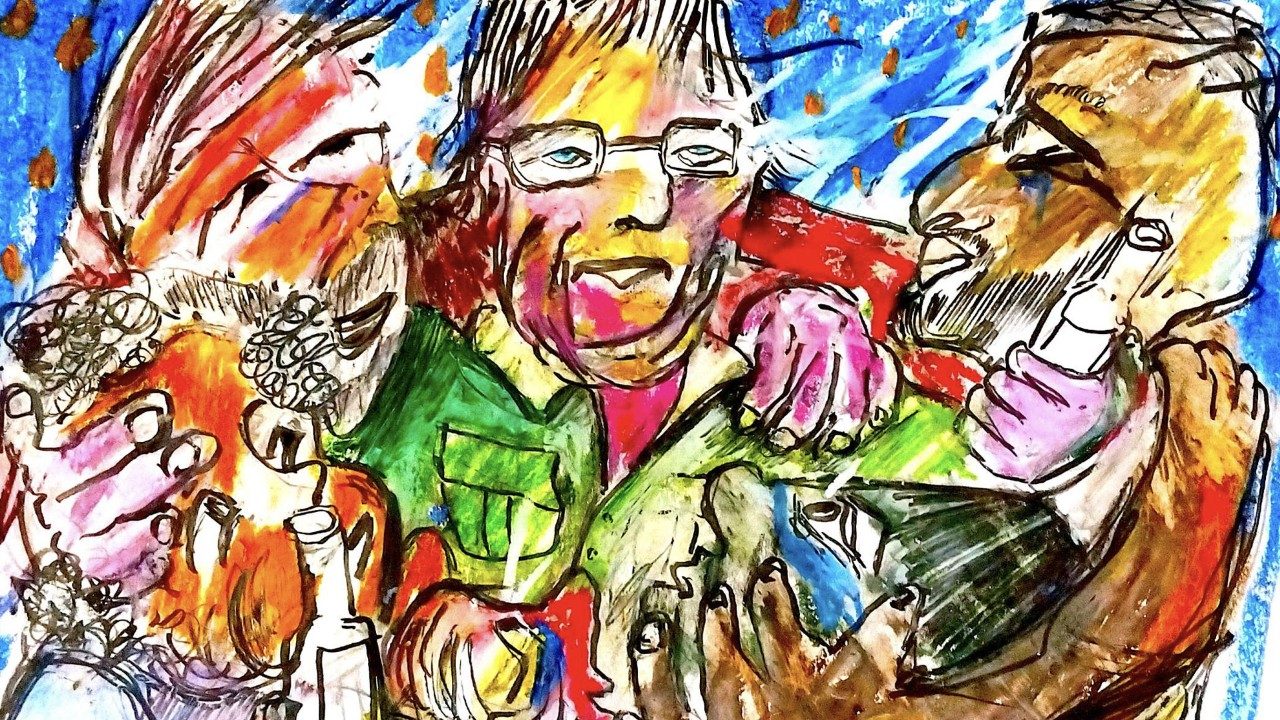In L’Osservatore Romano, the renowned American writer William Vollmann – whose career has been dedicated to the wretched of the earth: the poor, the homeless, prostitutes – reflects on Pope Leo’s apostolic exhortation ‘Dilexi te’.
By William T. Vollmann
Jesus’ disciples criticized the woman who poured costly perfumed oil on his head . . . [But] that woman saw in Jesus the lowly and suffering Messiah on whom she could pour out all her love. What comfort that anointing must have brought to the very head that within a few days would be pierced by thorns! . . . No sign of affection, even the smallest, will ever be forgotten, especially if it is shown to those who are suffering, lonely or in need, as was the Lord at that time.
READ THE FULL TEXT HERE IN L’OSSERVATORE ROMANO
To envision the Crucifixion truly, with verisimilitude, is to be not only wounded by grief but oppressed by disgust. The taunts of those to whom this atrocity was entertainment, the flies settling on Christ’s face and crawling into the wound on His side, the stench of Golgotha and the skulls underfoot convey that point. And since poverty can be a kind of crucifixion, and because I will tell you as accurately as I can what I, a rich man, have seen of it, there will be ugly details in what follows, for which I request your understanding. When somebody gets tortured with a crown of thorns, how would I serve the good by passing over the fact that he bleeds?
I own a building on a large parking lot, in a poor neighborhood of Sacramento, California. My city in her wondrous compassion has made it illegal for us to sleep in our own back yards for more than one night. The obvious purpose is to prevent the homeless from establishing themselves anywhere. While their difficulties should not be compared to those of, say, Ukrainians dodging murderous drones, being turned out of one’s tent into the rain can be lethal, especially when one’s sleeping bag and everything else gets confiscated. In 2022, the most recent year for which I could find information, 203 homeless people died in greater Sacramento. More than half came to their ends outdoors. How many perished specifically of exposure no one can say. In the words of an experienced friend, “If it’s five degrees when a person dies outside and the coroner detects alcohol in his blood, who knows what the death certificate should say?” What those death certificates do say is that in the first half of 2022, drug overdoses fed the graveyard 48.7% of the time. Several of my neighbors express mild satisfaction to be rid of those featherless bipeds. They did it to themselves, you see, or brought it on themselves, like a woman whose rape is her fault for wearing a miniskirt; I’ll bet that the Roman soldiers deployed at Golgotha expressed similar opinions about a certain “King of the Jews” who could perfectly well have stayed quiet. — As for the 51.3% who were murdered or died of hypothermia and cardiovascular disease, they earn more post-mortem sympathy (lucky them!), but to no excessive degree, because it is inconvenient to include the homeless in our human family.
We disdain them for begging, reeking or leaving behind garbage, excrement, furniture, scattered legal documents. They beg because they are hungry or the sick wife might feel better in a motel room, or because they are addicted to the “street medicine” which makes it less frightening to lie down behind a garbage bin, possibly to get rousted out or attacked in their sleep. They smell bad because showers are never guaranteed to the likes of them, and because when offered the rare chance to wash up they fear to store their belongings out of sight. They produce heaps of waste because they lack the trash service that richer people buy, because they live on junk food, which comes plastic-wrapped and is carried away in plastic bags, and because lavatories are no more available to them than showers. My friend William (from whom I have not heard since 2022, and because (a) we used to be very close and (b) he had cirrhosis, I assume that he is dead) once told me how it was when he first became homeless and suffered from diarrhea. Finally, much too late, and without a spare pair of pants, he found a facility with open stalls, in one of which he sat while gangbangers jeered at him. Of course a person who stinks, and drags everywhere with him a big backpack of stinking necessities, gets few job offers, and it is precisely on account of his supposed idleness that moneyed people look down on him. When I putter around in my parking lot, painting out graffiti or removing verminous bags of excrement, men often ask me for work: “Please, mister; I can do anything.” When I can, I’ll pay five dollars, or maybe twenty, for them to pull weeds from the sidewalk so that the city will not fine me. In the fall we might make leaf-piles together, one of us with the pushbroom and the other with the rake; I don’t take my eyes off the rake very long, because if it gets stolen I must walk a long way to the hardware store. As it happens, most of these men do an honest, thorough job. They are hoping I will hire them again.
Read the full text here in L’Osservatore Romano


